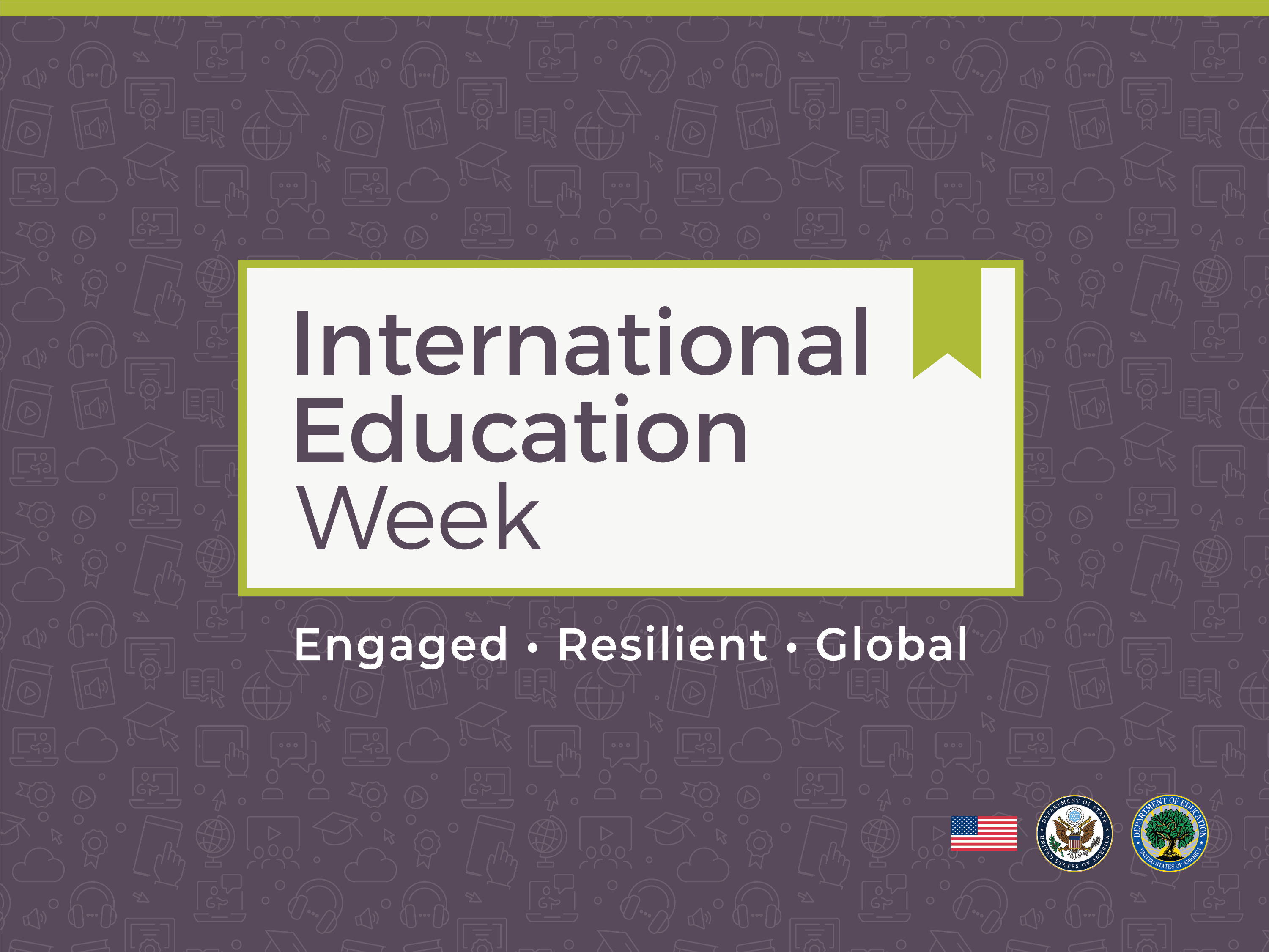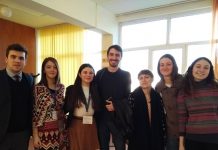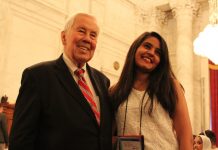In honor of International Education Week 2021, we spoke with two FLEX alumnae from Russia who provide English learning courses through their own business initiatives.
They both work in distinct levels of educational institutions and they both use different methods of teaching, but nevertheless, the two of them have outstanding experiences and suggestions which we invite you to explore in the following interviews.
Please introduce yourself and tell us about your kindergarten business.
 My name is Olga Tomilina. I am FLEX’06/RBL’16 alumna. I was born and raised in a small town in Yakutia and moved to Moscow for my university studies. Six years ago, I started my own business – a private bilingual kindergarten – and have been running it ever since.
My name is Olga Tomilina. I am FLEX’06/RBL’16 alumna. I was born and raised in a small town in Yakutia and moved to Moscow for my university studies. Six years ago, I started my own business – a private bilingual kindergarten – and have been running it ever since.
Why have you decided to set up a kindergarten? What were your goals back then?
The idea of setting up a kindergarten emerged when my daughter was born. I was 24 years old at that time, and it was a difficult period for me since it was a tough transition to motherhood, my new reality and responsibilities. On top of that, I was a single parent, which was an additional hardship I had to go through. My main thought at that moment was that I had to be fully engaged in raising my daughter, while not losing myself as a professional individual. By that time, I have already had experience working in non-profit, international corporations and small tech startups. But none of those roles were satisfying me, though a career in a pharmaceutical corporation, where I was working at that moment, was very stable and safe.
On the other side, the kindergarten was a perfect decision – I got to spend most of the time with my daughter while providing her with a prominent level of care for her development.
And the concept of bilingual environment – the place, where caretakers speak to children in both English and Russian – was familiar to me. I wanted my daughter to learn English early on, in order to open up to global opportunities in education, career and development.
What makes your kindergarten unique?
My kindergarten – Kidville – has a bilingual educational program for children starting from the age of two. We are providing English-speaking environment for two to three hours daily for our little students.
Children can learn a foreign language naturally until they reach the age of six, which is an important period for speech development.
Also, such concept is not unique in Russia, where other private bilingual kindergartens activate. However, since I am myself a product of bilingual learning from my FLEX experience, I choose the best foreign teachers and innovative educational programs, so the children can have the most valuable and influential experience in my kindergarten.
What impact do you believe you have on the children’s future?
I am a strong believer in early years development. The children placed into a positive, safe and educational environment become more responsible, empathetic, smart young students, able to ask questions, learn and initiate activities.
What kind of development program do you use in your kindergarten?
We use Lev Vygotsky’s programs and approaches, which create an accessible environment for children, by fostering independence, creativity and role-play activities.
Tell us about teaching English to children at your kindergarten.
The teacher speaks to children in English, and never switches to Russian. They sing songs, read books, do crafts and play games in English.
Do you think you have a positive change on children’s life and on the life of their families?
Definitely, they develop – becoming independent, strong, confident, and intelligent. They graduate kindergarten knowing how to speak and understand English, as well as how to read and write the basics. Consequently, their parents are able to work and reach their personal goals, while knowing that their children are safe, happy and productive.
What would you like to wish to parents who are looking for the best kindergarten for their children?
 In my professional view, child development is not a task of a single teacher. It is a system, big or small like my kindergarten, which needs to be organized and supported constantly. I would recommend meeting the principal of the kindergarten and ask about standards of the organization on child development. They should be close to parents’ ethics on raising their children. I would also ask how the teachers are learning and developing professionally. Kindergarten teacher is in fact a very demanding intellectual profession, therefore a good teacher needs to be part of the professional teachers’ community while keeping up with the new tendencies. In addition, a good teacher is a life-long learner.
In my professional view, child development is not a task of a single teacher. It is a system, big or small like my kindergarten, which needs to be organized and supported constantly. I would recommend meeting the principal of the kindergarten and ask about standards of the organization on child development. They should be close to parents’ ethics on raising their children. I would also ask how the teachers are learning and developing professionally. Kindergarten teacher is in fact a very demanding intellectual profession, therefore a good teacher needs to be part of the professional teachers’ community while keeping up with the new tendencies. In addition, a good teacher is a life-long learner.
Another important aspect in choosing the best kindergarten for your child would be trust. Check everything and ask all the questions, but after you have decided, you need to trust the institution and let the worry go. Partnership with the teachers and the organization is the key to successful kindergarten experience.
What would you like to wish to the children from your kindergarten?
I really love all of them. I wish them to be healthy and to follow their innate curiosity and strive for knowledge. I wish all of them would reach the top of their potential.
Please introduce yourself and tell us about your business. Why did you decide to set it up?
My name is Victoria Kotova, I’m a FLEX’05 alumna. In 2016, I left my corporate job as a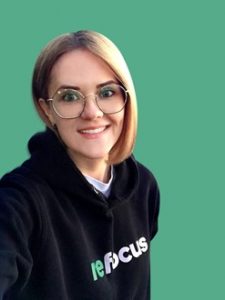 business controller in an international construction company and decided to start a project that would help people learn English faster. I aim to create a universal method for people to learn how to speak English in three months. I have this goal because of my personal story and my desire to make an impact on people’s lives. It took me more than 12 years with a tutor and the toughest decision in my life to start speaking English fluently.
business controller in an international construction company and decided to start a project that would help people learn English faster. I aim to create a universal method for people to learn how to speak English in three months. I have this goal because of my personal story and my desire to make an impact on people’s lives. It took me more than 12 years with a tutor and the toughest decision in my life to start speaking English fluently.
I became a FLEX finalist and went to the U.S. when my mother was seriously ill and I did not know whether I would see her again. That is why I will do anything it takes to teach people who want to speak English but do not have enough time or anyone to practice with.
What makes your business unique? Tell us about the projects you have worked on.
I do not teach my students how to read or write in English. I do not ask them to do grammar or vocabulary exercises. I think that all these exercises have very little to do with learning how to speak. My students watch short videos and practice what they learn right away by saying it out loud. Those are not phrases that somebody had written for them. These are the phrases that my students can say about their own lives. Step-by-step, they start speaking fluently. I do not ask my students to use any programs other than my YouTube channel even though I believe that, for example, spaced repetition programs work well.
But I do ask my students to use three rules that I came up with that I know for a fact help people overcome language barrier:
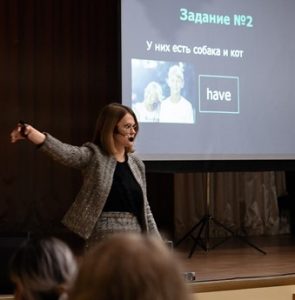
- Focus on the person you are talking to rather than yourself. It is a lot easier to speak when we do not focus on our mistakes, pronunciation or vocabulary. The main point is to make sure people understand us.
- Rephrase if you do not know how to say something.
- Look for alternatives when you don’t know words or expressions.
In order to show that this is possible, now I teach a group of blind people in St. Petersburg. It is a big challenge and at the same time a great opportunity for me to show that my teaching method works. Even though we are not done yet (the course will end in November), I can already say that the results are outstanding.
I also have an interesting project in my hometown Priozersk, Russia. In September, I announced that I would teach a group of 100 people in a big auditorium for free. I did it because I wanted to show that one-on-one classes are not as effective as a well-structured program with the “right” exercises.
Do you think you make an impact on people’s lives?
I know many people in their 40s, 50s and 60s who think it is too late for them to start learning English. I want these people to know that it is not true and it does not take years to start speaking English. With the help of my project, I try to show that we can acquire any skills we want and change our lives at any point in time. 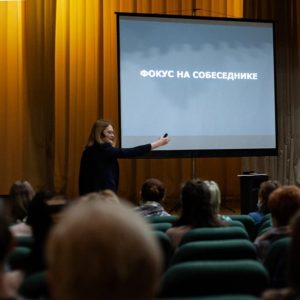
What would you like to wish to someone who is looking for the best English program for themselves?
If someone is looking for the best English program for themselves, the only recommendation I would suggest is to analyze whether the format and the exercises of a certain program will help them achieve the result they want.
Tell us about your best memory connected with the FLEX Alumni community and its activities.
For me, FLEX Alumni community is a great way to stay in touch with like-minded and ambitious individuals. I enjoyed taking part in the Mentoring program (cycles seven and eight) and FLEX Alumni English Teaching Workshop 2020. Both of these programs were a great opportunity to share my experience and learn from fellow alumni.
Written by Mariya Shishkina Honkanen ’07

